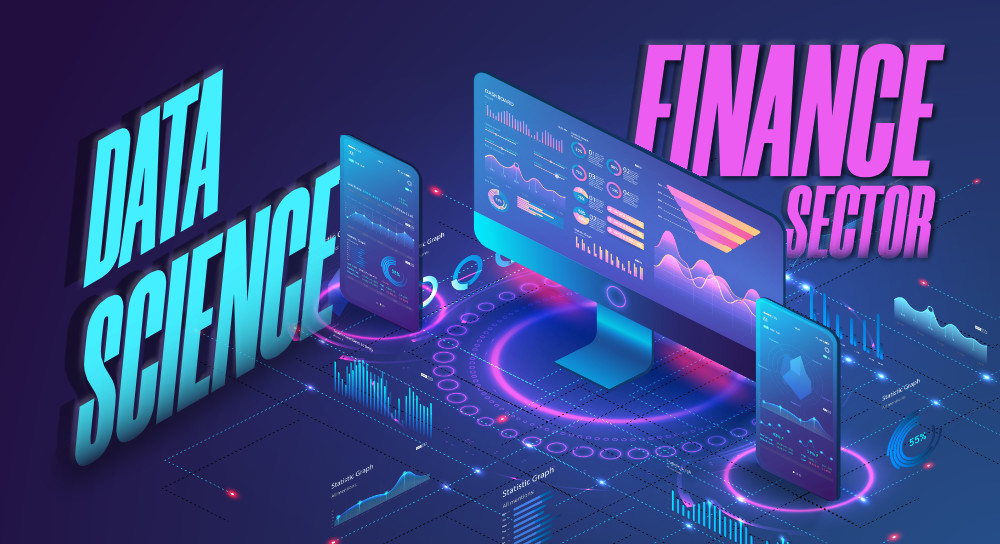
5 Inspiring Data Science Use Cases in the Finance Industry
Data science has become an increasingly indispensable element of the financial sector. It’s instrumental in allowing firms to make use of information in ways that would have been impossible only a few years ago.
Machine learning and advanced data analysis have taken a massive leap forward. It’s now instrumental in enhancing the ability of finance companies to predict, analyze, automate, and customize across the board.
Investors place great faith in finance firms to handle their money responsibly, so the only risks they take are heavily calculated ones. Even the slightest unforeseen dip in profits can have stakeholders running for the hills and cause severe damage to the company’s reputation. They therefore place a great deal of trust in data science to help them make informed choices.
This article outlines a few of the biggest ways in which data science has advanced interests in the finance sector.
Risk Assessment
Finance firms make their money primarily by offering loans to businesses and individuals. Then charging interest on the repayments. It’s a simple business model, but it entails plenty of risk and needs careful management.
Whenever you apply for a loan from a finance company, be it a personal or a business loan, your risk level is assessed. Experts ascertain whether or not you are likely to pay back your loan. The process of assessment is a complex one. It involves several variables, such as what collateral you have to offer, your credit history, capital holdings, and the current condition of the market. Based on these and other factors, the company will decide to approve or deny your loan.
Advances in machine learning have led to new techniques and models that assess risk. They automatically and accurately assess consumer and business credit risk quickly and easily.
By automatically analyzing data such as credit card transactions and debt-to-income ratios, AI can generate incredibly accurate risk assessment reports faster than ever before. The automation of risk assessment is a huge boon for any finance company. It massively expedites deals and reduces the likelihood of bad investments.
Reducing Fraud
One of the biggest threats to the success of any financial firm is fraud. Financial fraud comes in several varieties. It’s thus vital for financial companies to have meticulously designed safeguards in place to protect their assets.
Data scientists have been using algorithms for years to detect and circumvent instances of fraud. For example, have you ever had your bank contact you regarding unusual activity on your credit card? This is likely due to an algorithm picking up and flagging a transaction that’s outside the norm of your usual spending habits. The bank will generally block the transaction from clearing until they have confirmed that it was actually you who made the purchase.
This is only one example of how data science guards against fraud.
Finance firms are sometimes targeted by individuals who set up shell companies. Their sole purpose is to borrow money and then disappear. There are, however, telltale signs that a business may not be legitimate, which is where data science comes in. Advanced AI can flag businesses that exhibit suspicious activity and stop them in their tracks.
Market Predictions
Predicting stock market conditions obviously allows those in the finance sector to make lucrative investments. So, countless hours of manpower have gone into developing new and better ways of forecasting market activity.
Extremely complex algorithms are put to use, processing massive amounts of information per second. All for the purpose of identifying trends in consumer behavior and potential investment opportunities. Big firms used to hire statisticians to develop models for analyzing this data and formulating predictions. But machine learning has since proved far more efficient.
Finance firms can now extract real-time data from these algorithms to get in on lucrative investments before anyone else.
Consumer Analytics
Without clients, no firm can expect to make a dime. While the world of finance is inherently based on quantitative practices, client relations are just as important for financial firms as they are for any other business.
Advances in data science have allowed businesses around the world to build highly accurate profiles of their users. This arms them with vital information regarding their client’s interests and aspirations.
Using this data, financial firms can customize their user experience to make suggestions and offers based on what the customer is most likely to need or want at that time.
Instead of trawling the population for prospective clients, consumer analytics allows finance firms to develop targeted advertisements and tailored offers. These are much more likely to elicit positive responses which will eventually translate to, you guessed it, more profit.
Managing Customer Data
Financial institutions collect all kinds of data about their customers for various reasons. The more they know about their customers, the better they can anticipate their needs and assess their money-making potential.
Data gets mined from all kinds of sources, such as social media, online activity, purchasing history, previous debts, and much more. Many people are surprised to find out just how much banks and other financial firms know about their clients.
While privacy is of course a concern, reputable finance companies use data to make positive changes for their clients, such as creating better deals, optimizing user experience, and protecting against fraud.
As you may be able to imagine, collecting and organizing customer data is a gargantuan task. Data scientists have spent years and years developing more efficient systems for organizing information and gleaning usable intelligence from it.
We have reached an exciting stage in the advancement of data science. Machine learning is beginning to understand increasingly complex and mercurial aspects of human life. And it is only getting smarter. Without the burden of having to manually sift through and organize oceans of information, the potential for optimizing activity in the financial sector is seemingly limitless. While some people find the prospect of intelligent machines ominous, it’s clear that the world of finance would be incredibly different without them.
In the last few years, data has become an essential business tool . It’s playing a major role in success in almost every sector. The use of data in the finance industry is nothing short of a game changer. Processes, procedures and operations are all shifting, and it’s data that’s driving the change.



